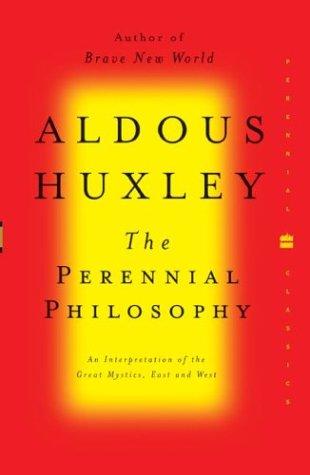I am using Aldous Huxley's extraordinary book The Perennial Philosophy for my chapter on the uses of Buddhism in Western self-help.
I have never read it before, and will admit that it's a little heavy-going. It's one of the most peculiarly constructed books - quite a post-modern artefact. There are long passages of reflection and explication, chunks of quotation from the spiritual classics to illustrate his proposition, and then snatches of quotation from other spiritual traditions that further flesh out his theme.
I am surprised, however, by the relative sophistication of his understanding of Buddhism. At first I was put off by the generalisations he was making about the tradition (asserting its godlessness etc.), commonplace observations that have become cliches by now. But he soon delves into it much more deeply, trying to find a place in Buddhism for soul and God so that he can fit it into his scheme of a universal spiritual philosophy that unites humanity. In fact, some of his equivalinces and comparisons are quite clever, but perhaps that's because I agree with them.
The Perennial Philosophy was written in 1945, by which time Huxley was well and truly in his mystic phase having dabbled in the Vedanta school of Ramakrishna (to which he introduced Christopher Isherwood). It harks back to an old idea that there are core similarities that unify all of the religious traditions, and so point to a unified creative source that might be called God. It had been an idea much vaunted by the earlier Theosophists.
It was a reasonably popular book, and became immensely influential on the New Age scene. It was one of those books that was rediscovered and taken up with great enthusiasm by the counter-culture of the 1960s. Huxley sought to prove to Christians that spiritual truth existed in all the great religious traditions, and that the West had as much to learn from the East as vice-versa. In many ways it was a re-statement of the American Transcendentalist philosophy of the late nineteenth century (for more on that, read Richard G. Geldard's excellent The Essential Transcendentalists).

No comments:
Post a Comment